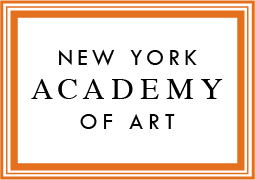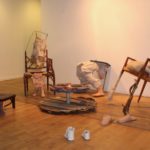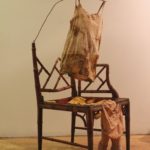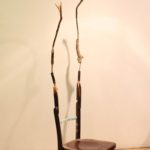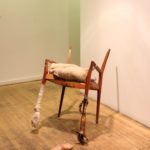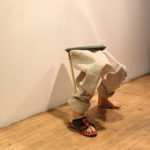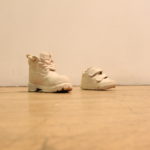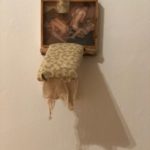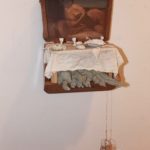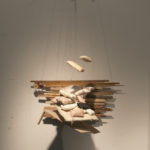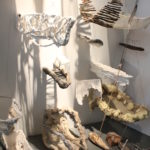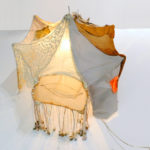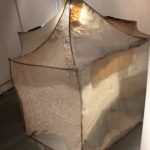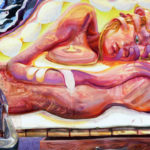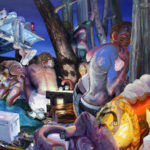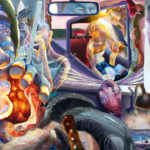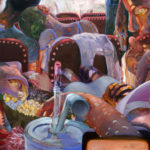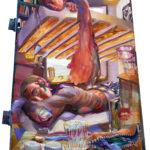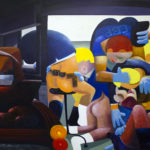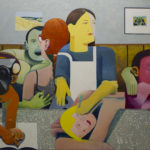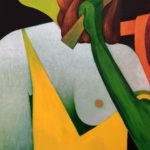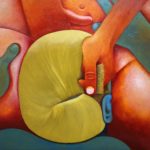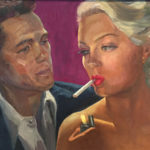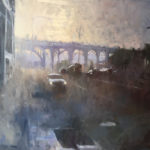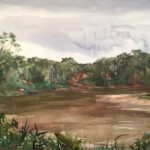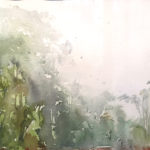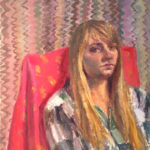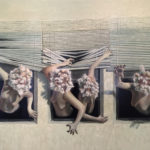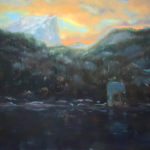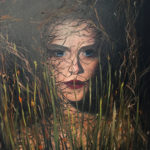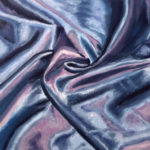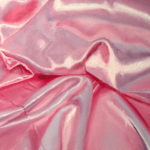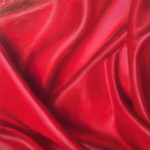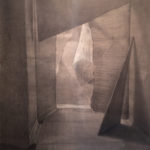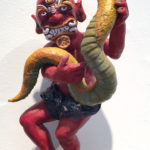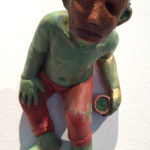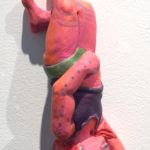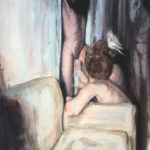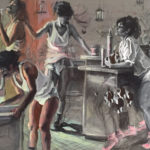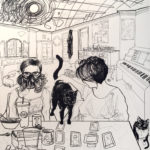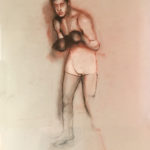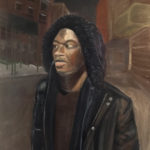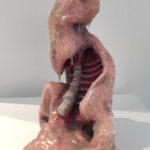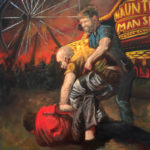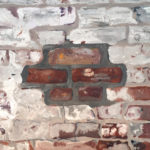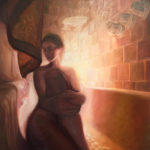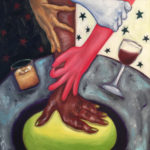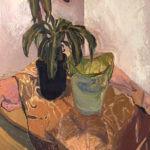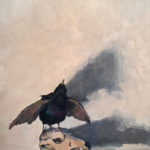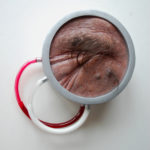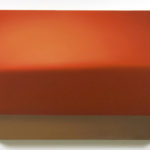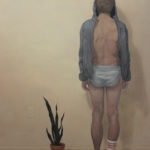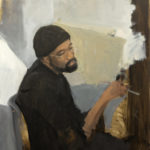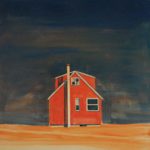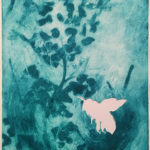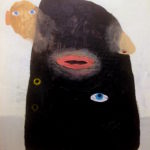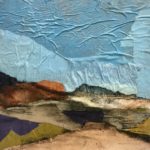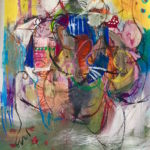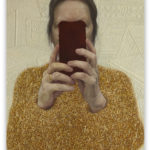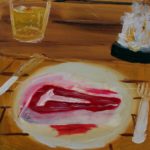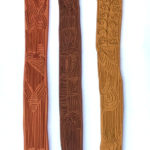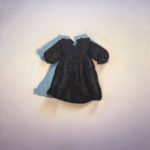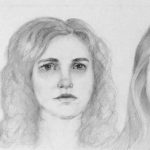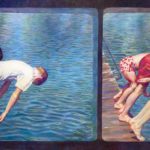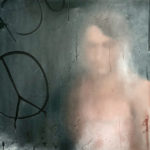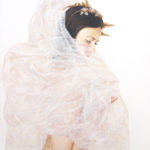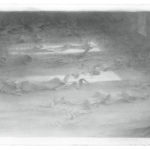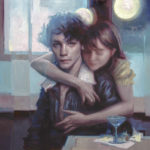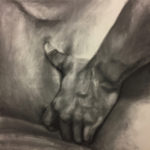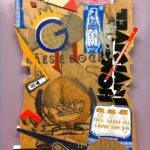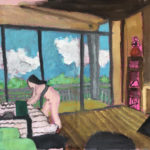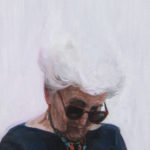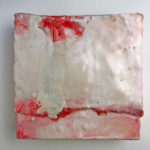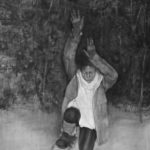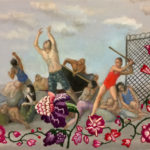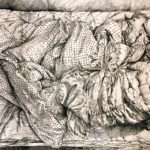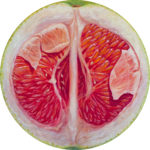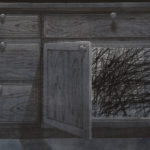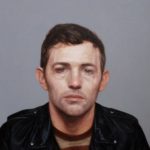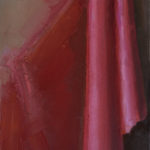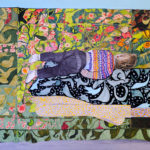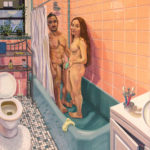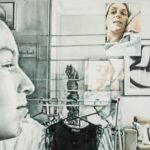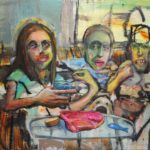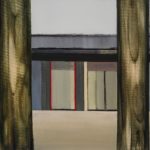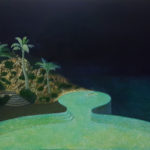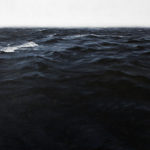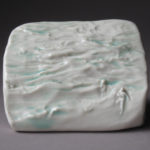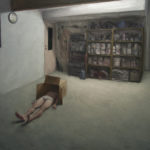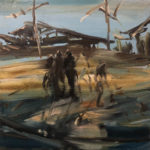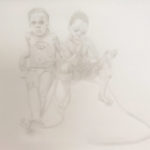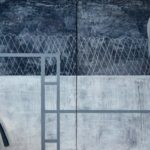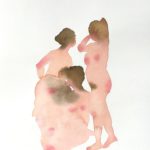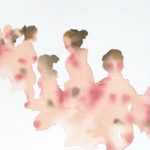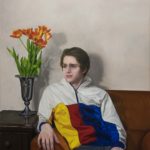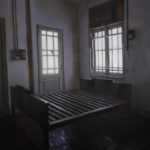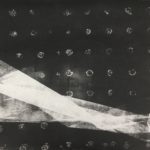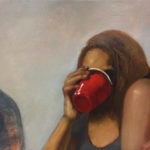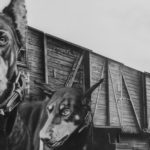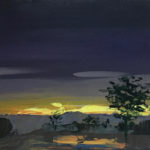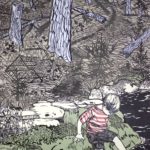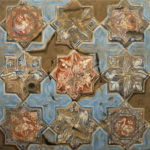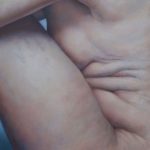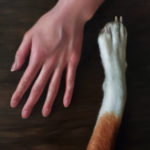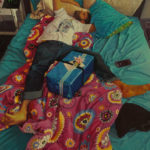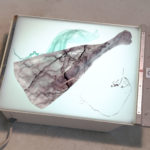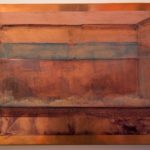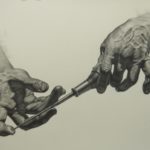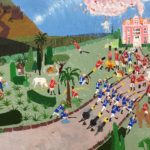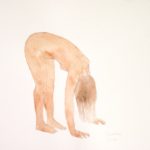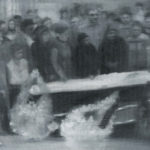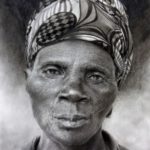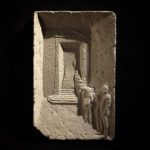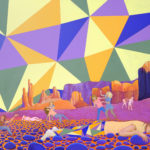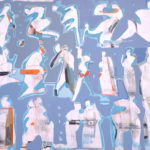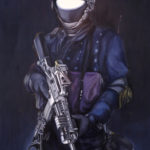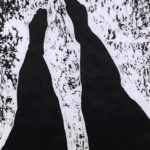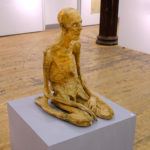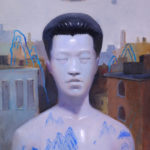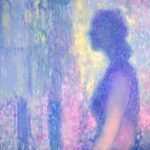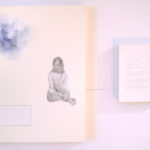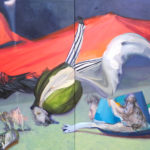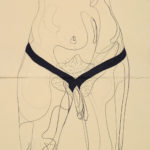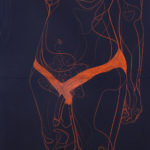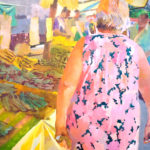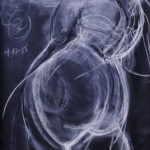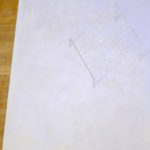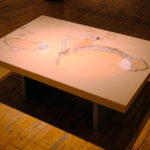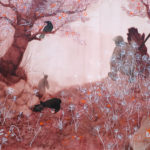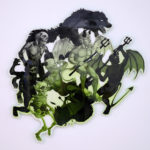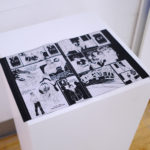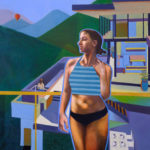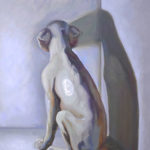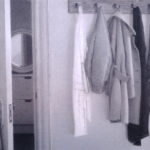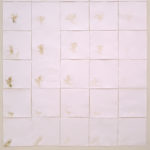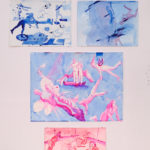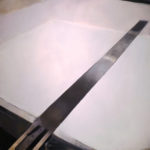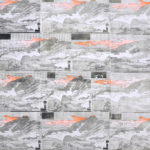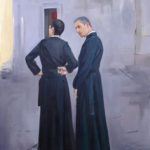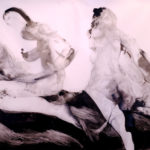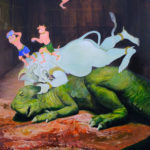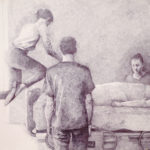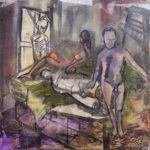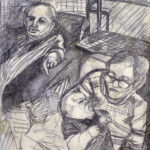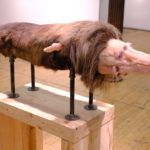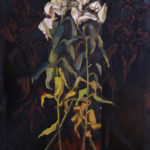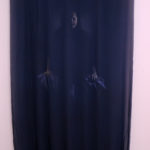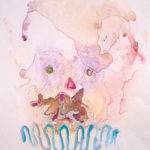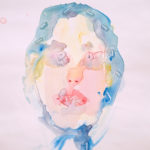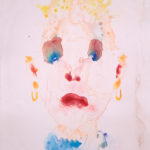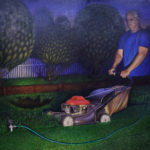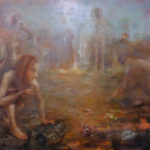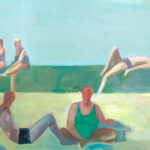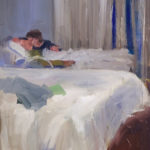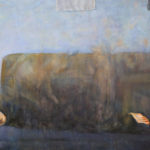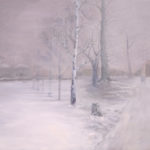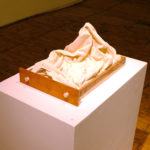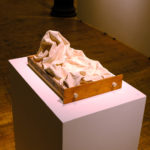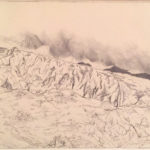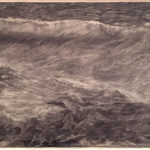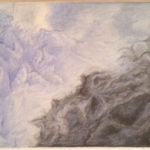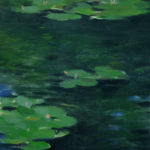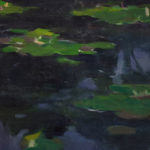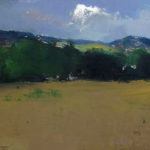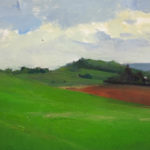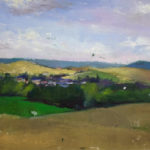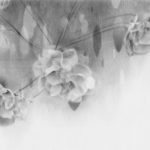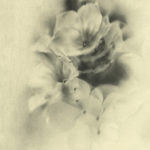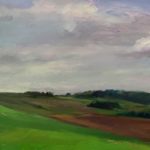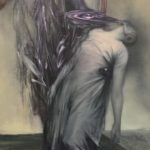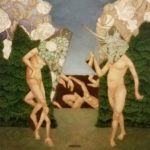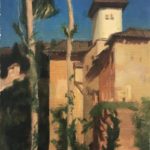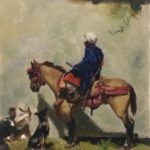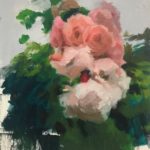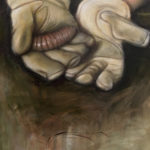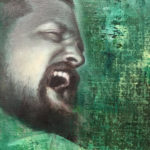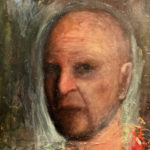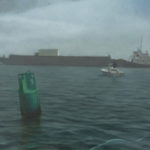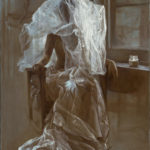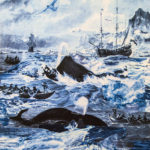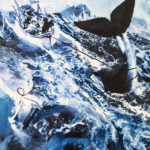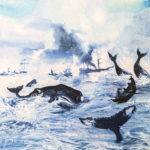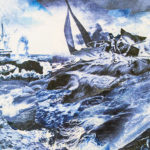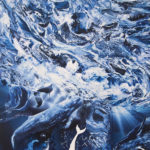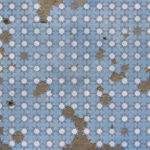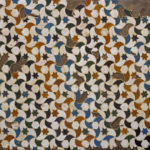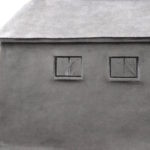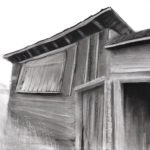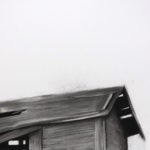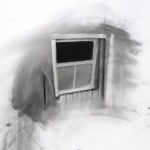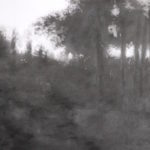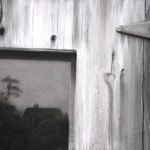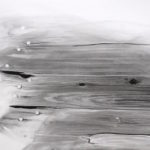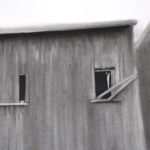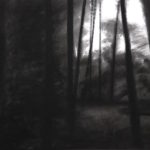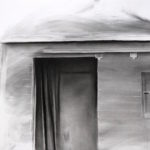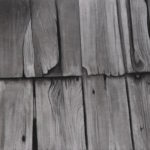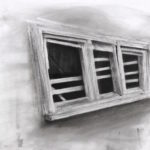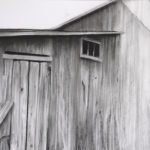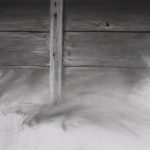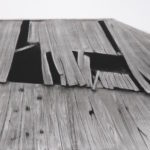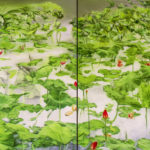Jago Artist Talk
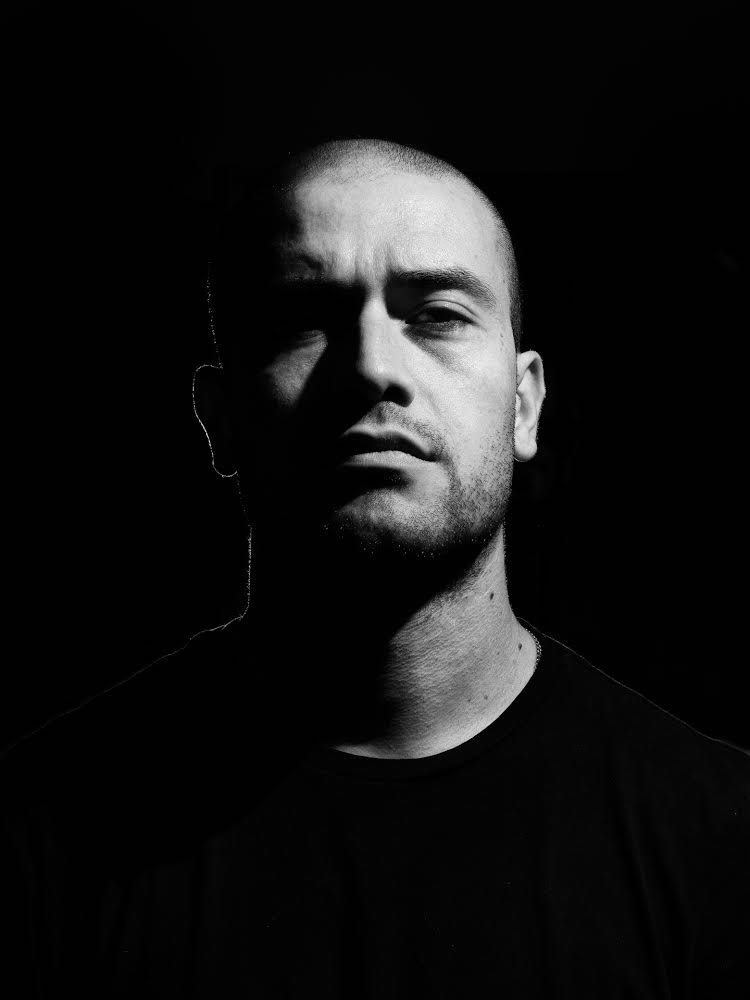 Jago is an eclectic artist and sculptor, whose works are distinguished by their technical mastery, expressive exuberance, and vigorously in-depth psychological characterizations. Drawing on his study of the great renaissance and baroque masters, his work is born of continuous research of material, and thematic synthesis within a complex cultural and conceptual framework. Nicknamed the Social Artist, Jago has succeeded in breaking the wall that usually exists between artist and audience by engaging admirers of his work via social media (he currently has more than 52,000 followers on Instagram, and 250,000 on Facebook). For Habemus Hominem, his sculpture of Pope Emeritus Benedict XVI undressed after his resignation, he was awarded the Holy See’s “Pontifical Medal” in 2012.
Jago is an eclectic artist and sculptor, whose works are distinguished by their technical mastery, expressive exuberance, and vigorously in-depth psychological characterizations. Drawing on his study of the great renaissance and baroque masters, his work is born of continuous research of material, and thematic synthesis within a complex cultural and conceptual framework. Nicknamed the Social Artist, Jago has succeeded in breaking the wall that usually exists between artist and audience by engaging admirers of his work via social media (he currently has more than 52,000 followers on Instagram, and 250,000 on Facebook). For Habemus Hominem, his sculpture of Pope Emeritus Benedict XVI undressed after his resignation, he was awarded the Holy See’s “Pontifical Medal” in 2012.
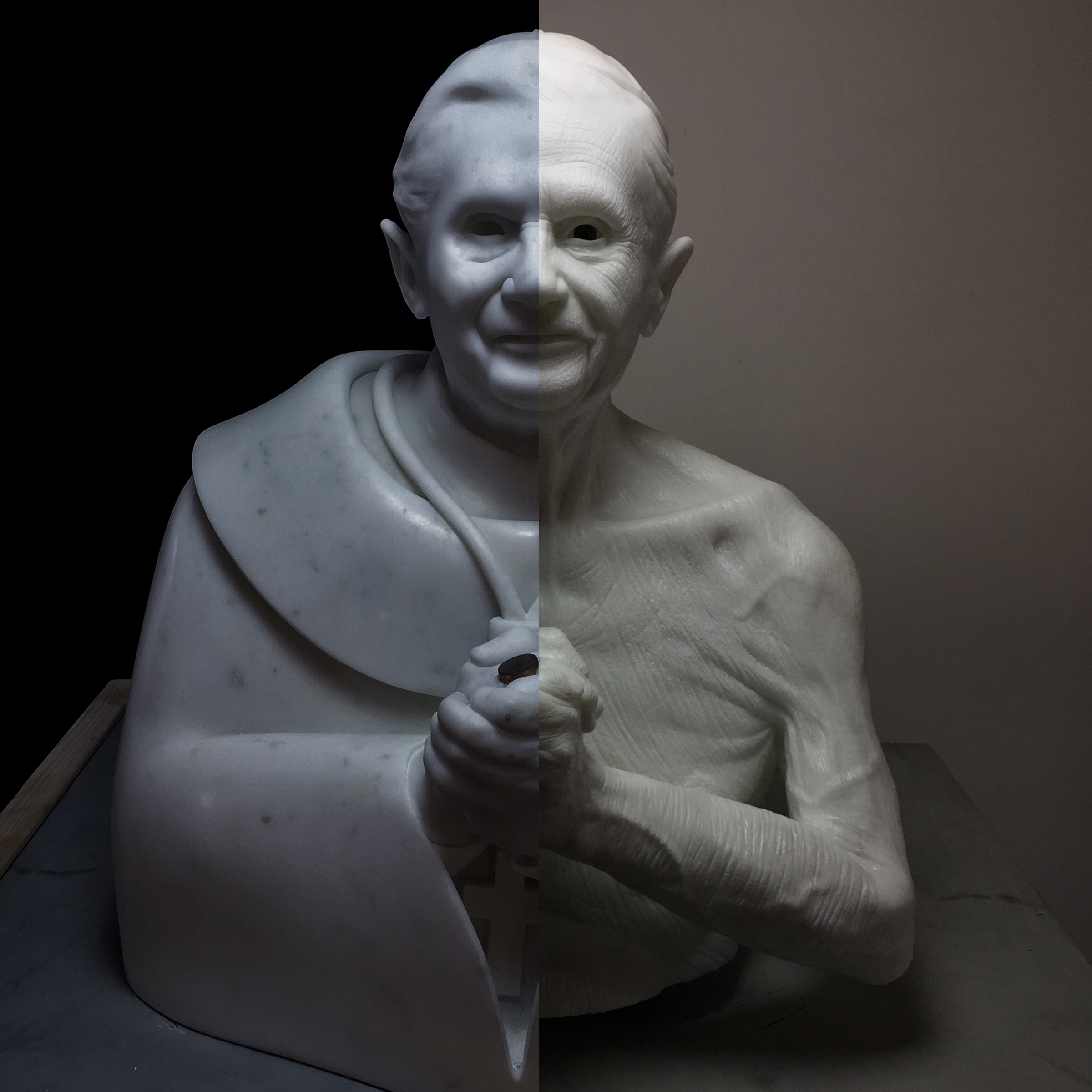
Creating Visual Histories: the Role of Art History Today with Yasmeen Siddiqui and Alpesh Kantilal Patel
November 7: Creating Visual Histories: the Role of Art History Today:
Sharon Louden moderates a conversation with Yasmeen Siddiqui and Alpesh Kantilal Patel as to how artists become part of art history today. How can art history be relevant and be a bridge into the public realm?
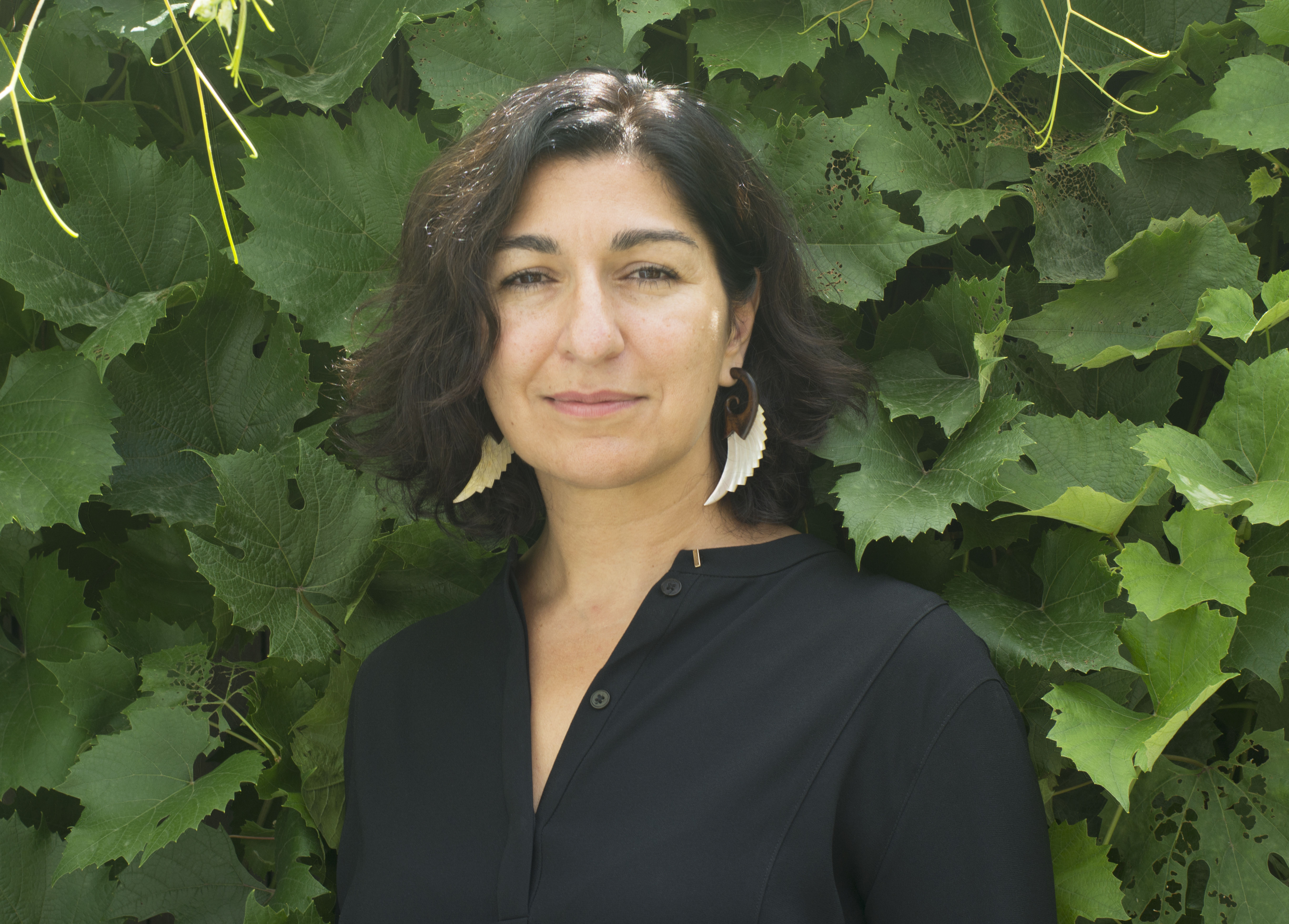
Yasmeen Siddiqui is the founder of Minerva Projects, an incubator space launched in Denver, Colorado, and based in Pine Plains, New York. It is a site where curatorial ideas are tested in service to publishing books. This November, she will be a resident at the Ucross Foundation in Wyoming. Collaborating on multiple fronts with art historian, Alpesh Kantilal Patel, Siddiqui is co-editing the forthcoming volume on art history in the Intellect Books Series, “Living and Sustaining a Creative Life”; co-moderating a discussion for the 2019 College Art Association Conference in New York titled, “A reckoning with the recent future of art historical knowledge production”; and will be part of a core-faculty, teaching at the Chautauqua School of Art starting in the summer 2019. Siddiqui’s pasts subjects in writing and curating have included Do Ho Suh, Consuelo Castañeda, Hassan Khan, Linda Ganjian, Pia Lindman, Lara Baladi, Mary Carothers, Matt Lynch and Chris Vorhees, and Mel Charney. Her writing has appeared on Hyperallergic and in ART PAPERS, the Cairo Times, Medina Magazine, Flash Art, Modern Painters, NKA and The Brooklyn Rail, and in books and exhibition catalogues including: Fault Lines Contemporary African Art and Shifting Landscapes; Do Ho Suh: A Contingent Object of Research; “Do Ho Suh” in If you were to live here: The 5th Auckland Triennial; On Architecture. Melvin Charney a Critical Anthology, edited by Louis Martin.
Twitter: @yaz_istan Instagram: @minervaprojects
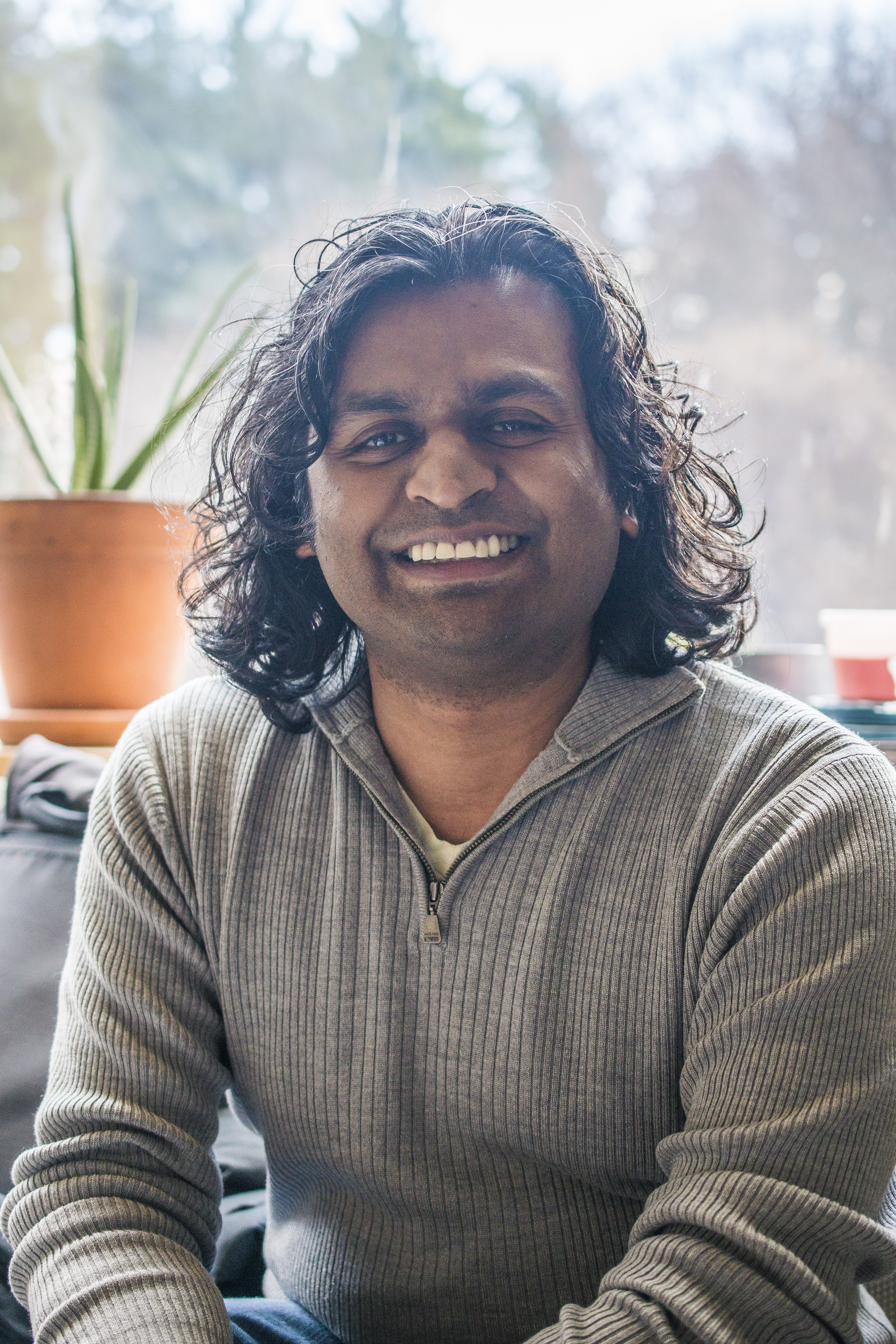 Dr. Alpesh Kantilal Patel is Associate Professor of Contemporary Art at Florida International University (FIU) in Miami and currently a visiting scholar at the Asian/Pacific/Institute at New York University. His art historical scholarship, curating and criticism reflect his queer, anti-racist, and transnational approach to contemporary art. The author of Productive failure: writing queer transnational South Asian art histories (Manchester University Press, 2017), he is currently working on two books: a single-authored monograph “Transregional Entanglements: Sexual Artistic Geographies” and with Yasmeen Siddiqui an anthology “Living and Sustaining a Creative Life: Art History” under contract with Intellect Press. His research has been supported by grants and fellowships from the National Endowment of Humanities, Arts Council England, Fulbright Foundation, and Cranbrook Academy of Art. A frequent contributor of exhibition reviews to various international art publications, he was editor of contemporary art book reviews for caa.reviews from 2015-18. He has worked in the curatorial and director’s departments of the Whitney Museum of American Art and the New Museum of Contemporary Art. At Miami Beach Urban Studios, he organized solo exhibitions of artists such as mounir Fatmi, Tom Scicluna, Paul Donald and Saravanan Parasuraman. Dr. Patel received his PhD in Art History & Visual Studies from the University of Manchester and a BA in History of Art with distinction from Yale University.
Dr. Alpesh Kantilal Patel is Associate Professor of Contemporary Art at Florida International University (FIU) in Miami and currently a visiting scholar at the Asian/Pacific/Institute at New York University. His art historical scholarship, curating and criticism reflect his queer, anti-racist, and transnational approach to contemporary art. The author of Productive failure: writing queer transnational South Asian art histories (Manchester University Press, 2017), he is currently working on two books: a single-authored monograph “Transregional Entanglements: Sexual Artistic Geographies” and with Yasmeen Siddiqui an anthology “Living and Sustaining a Creative Life: Art History” under contract with Intellect Press. His research has been supported by grants and fellowships from the National Endowment of Humanities, Arts Council England, Fulbright Foundation, and Cranbrook Academy of Art. A frequent contributor of exhibition reviews to various international art publications, he was editor of contemporary art book reviews for caa.reviews from 2015-18. He has worked in the curatorial and director’s departments of the Whitney Museum of American Art and the New Museum of Contemporary Art. At Miami Beach Urban Studios, he organized solo exhibitions of artists such as mounir Fatmi, Tom Scicluna, Paul Donald and Saravanan Parasuraman. Dr. Patel received his PhD in Art History & Visual Studies from the University of Manchester and a BA in History of Art with distinction from Yale University.
Facebook: https://www.facebook.com/alpesh.k.patel.77
Chubb Fellows Exhibition 2018
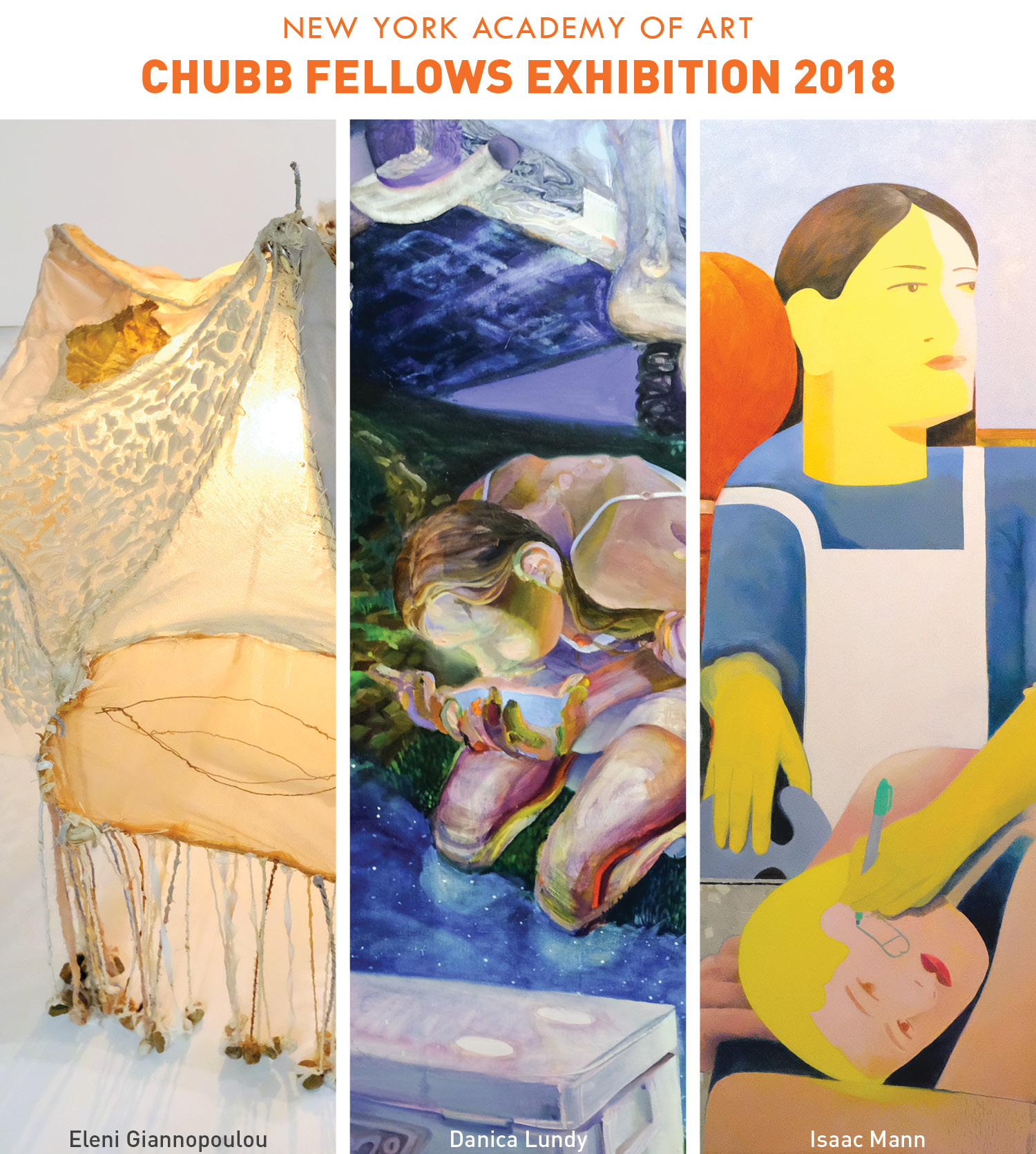
- Eleni Giannopoulou
- Eleni Giannopoulou
- Eleni Giannopoulou
- Eleni Giannopoulou
- Eleni Giannopoulou
- Eleni Giannopoulou
- Eleni Giannopoulou
- Eleni Giannopoulou
- Eleni Giannopoulou
- Eleni Giannopoulou
- Eleni Giannopoulou
- Eleni Giannopoulou
- Eleni Giannopoulou
- Danica Lundy
- Danica Lundy
- Danica Lundy
- Danica Lundy
- Danica Lundy
- Isaac Mann
- Isaac Mann
- Isaac Mann
- Isaac Mann
- Isaac Mann
Summer in the City: Class of 2019 Summer Show
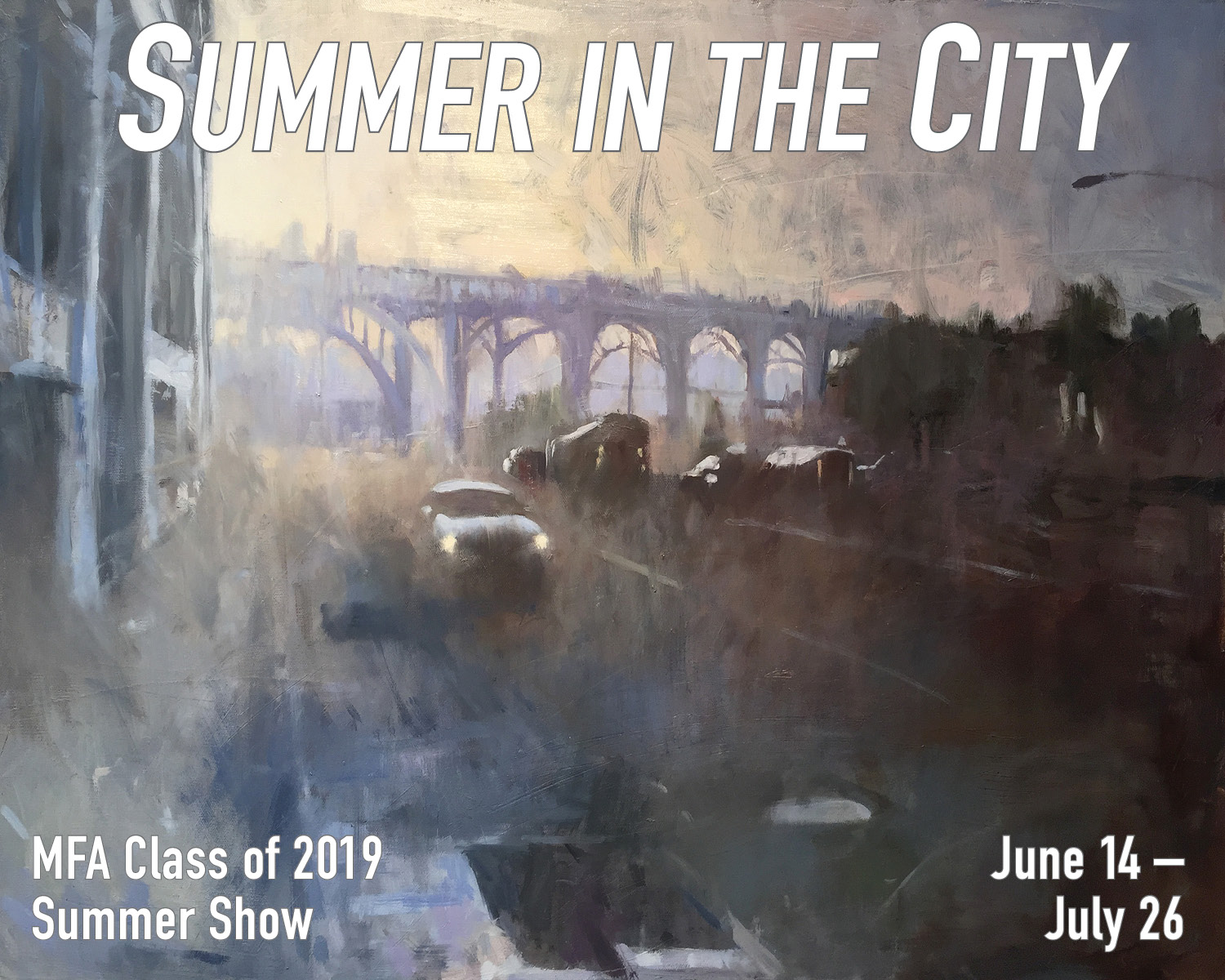
- Tatiana Akoeva (MFA 2019)
- Luke Baggot (MFA 2019)
- Taissia Basaria (MFA 2019)
- Taissia Basaria (MFA 2019)
- Leda Brittenham (MFA 2019)
- Justin Brooks (MFA 2019)
- Angela China (MFA 2019)
- Danny Fang (MFA 2019)
- Hannah Finkbohner (MFA 2019)
- Allie Fuller (MFA 2019)
- Allie Fuller (MFA 2019)
- Allie Fuller (MFA 2019)
- Sullivan Giles (MFA 2019)
- Sally Han (MFA 2019)
- Madison Haws (MFA 2019)
- Madison Haws (MFA 2019)
- Madison Haws (MFA 2019)
- Georgia Hinaris (MFA 2019)
- Suzanne Justice (MFA 2019)
- Helena La Rota Lopez (MFA 2019)
- Nelson Nunez (MFA 2019)
- Zoe Papini (MFA 2019)
- Kristen Pedote (MFA 2019)
- Bryant Portwood (MFA 2019)
- Erica Rochelle (MFA 2019)
- Monika Rosen (MFA 2019)
- Julie Severino (MFA 2019)
- Zachary Sitrin (MFA 2019)
- Errol Smith (MFA 2019)
- Leonard Virch (MFA 2019)
- Madeline Weibel (MFA 2019)
Summer Exhibition 2018
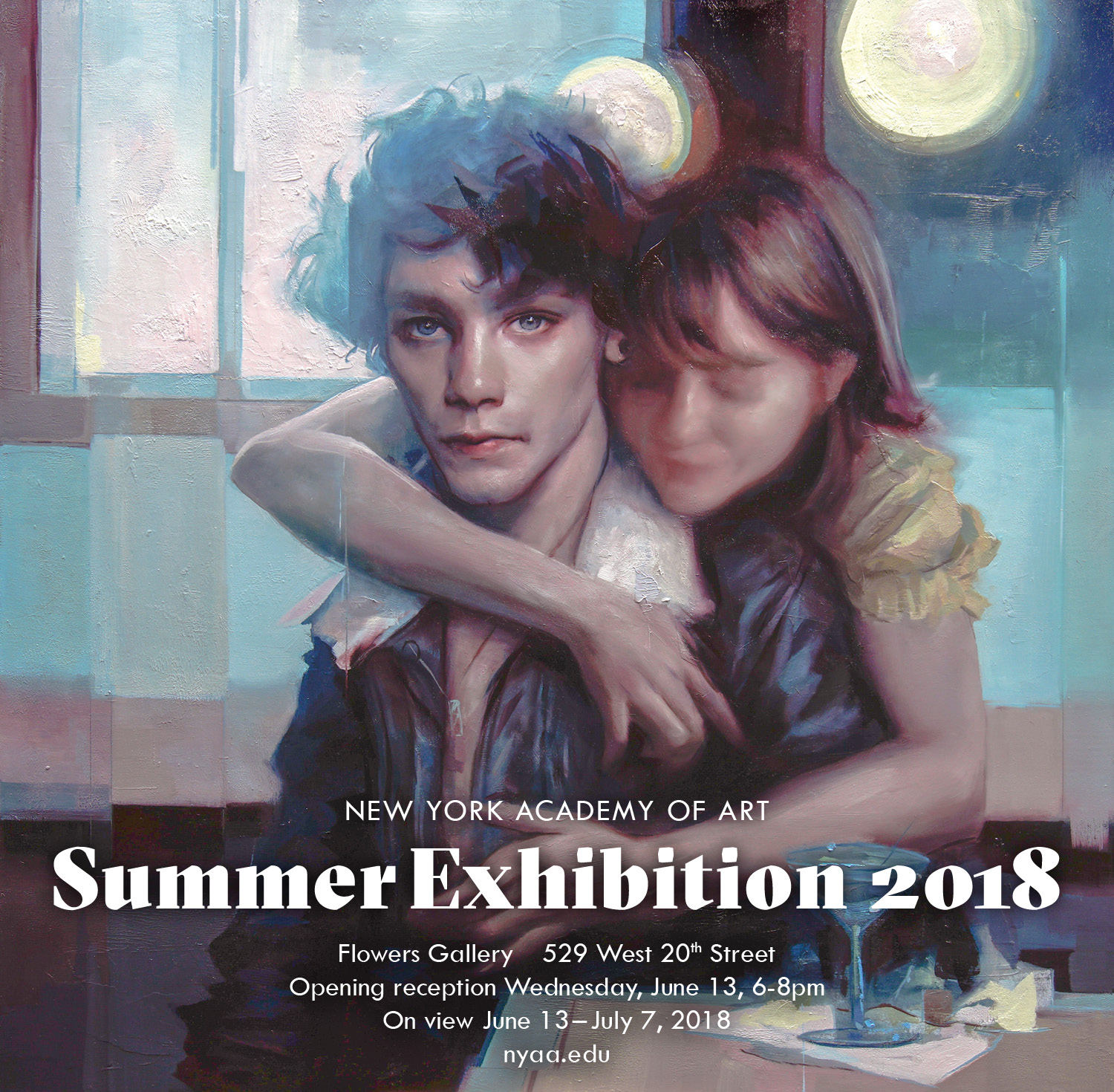
The New York Academy of Art is pleased to announce its 12th annual Summer Exhibition, a juried show at Flowers Gallery featuring nearly 80 works of painting, drawing and sculpture by Academy alumni, faculty and students. The works were selected from over 650 submissions, a record number, by a jury comprised of Brent Beamon, Director of Flowers Gallery New York, Nicole Berry, Executive Director of The Armory Show, Matthew Flowers, Managing Director of Flowers Gallery, Alice Gray Stites, Museum Director and Chief Curator of 21c Museum Hotels, Ambre Kelly, co-founder of SPRING/BREAK Art Show, and Richard Vine, Managing Editor of Art in America.
- Andrew Ackerman (MFA 2005)
- Emily Davis Adams (MFA 2011, Fellow 2012)
- Jean Pierre Arboleda (MFA 2006)
- Walker Augustyniak (MFA 2018)
- Luke Baggott (MFA 2019)
- Carrie Bobo (MFA 2009)
- Caleb Booth (MFA 2016)
- Nicholas Borelli (MFA 2012)
- Amanda Borosavage (MFA 2018)
- João Brandão (MFA 2013)
- Ilsa Brittain (MFA 2014)
- Jacob P. Brooks (MFA 2019)
- Kimberly Callas (MFA 1995)
- Kiki Carrillo (MFA 2015)
- Teresa Celemin (MFA 1999)
- Trish Coonrod (MFA 1995)
- Joshua Dean (MFA 2008)
- Allan Saint Denis (MFA 2017)
- Daisy Dodd-Noble (MFA 2016)
- Heidi Elbers (MFA 2010)
- Michèle Fenniak (Faculty)
- Steve Forster (MFA 2010)
- Allie Fuller (MFA 2019)
- Stephen Gaffney (MFA 1990)
- Bryan Keith Gardner (MFA 2017)
- Nick Gebhart (MFA 2015)
- Jodi Gerbi (MFA 2016)
- Eleni Giannopoulou (MFA 2017, Chubb Fellow 2018)
- Nava Gidanian-Kagan (MFA 2015)
- Valerie Gilbert (MFA 2016, Chubb Fellow 2017)
- Kristy Gordon (MFA 2013)
- Judith Gresh (MFA 2019)
- Alonsa Guevara (MFA 2014, Chubb Fellow 2015)
- Jingmei Sally Han (MFA 2019)
- Lucy Han (MFA 2018)
- Jacob Hayes (MFA 2014)
- Erinn Heilman (MFA 2015)
- Jacob Hicks (MFA 2012)
- Emily Rose Hirtle (MFA 2019)
- Patty Horing (MFA 2015)
- Laura Karetzky (MFA 1997)
- Sophia Kayafas (MFA 2016, Chubb Fellow 2017)
- Amina Kerimova (MFA 2017)
- Christopher Law (MFA 2014)
- Lisa Lebofsky (MFA 2006)
- Mey-Mey Lim (MFA 1995)
- Adam Lupton (MFA 2016)
- Kylie Manning (MFA 2010)
- Shanga Manning (MFA 2011)
- Catarina Mantero (MFA 2017)
- Ayumi Matsuba (MFA 2010)
- Ayumi Matsuba (MFA 2010)
- Luisiana Mera (MFA 2019)
- Tun Myaing (MFA 2006)
- Lisa Nicchi (MFA 2017)
- Rebecca Orcutt (MFA 2017)
- Mark Paczkowski (MFA 2013)
- Austin Park (MFA 2010, Fellow 2011)
- Laura Peturson (MFA 2005)
- Jennifer Presant (MFA 2002)
- James Razko (MFA 2015)
- Maggie Rose (MFA 2001)
- Rachel Sard (MFA 2016)
- Buket Savci (MFA 2012)
- Sarah Schlesinger (MFA 2015, Chubb Fellow 2016)
- Stephen Shaheen (MFA 2005)
- Kate Sinclair (MFA 2018)
- Jesse Stern (MFA 2012)
- Anastasiya Tarasenko (MFA 2017)
- Susan Taverna (MFA 2001)
- Georgios Taxidis (MFA 2019)
- Tunping Wang (MFA 2011)
- Jiannan Wu (MFA 2016)
- Shangkai Kevin Yu (MFA 2014, Chubb Fellow 2015)
2018 MFA Thesis Exhibition
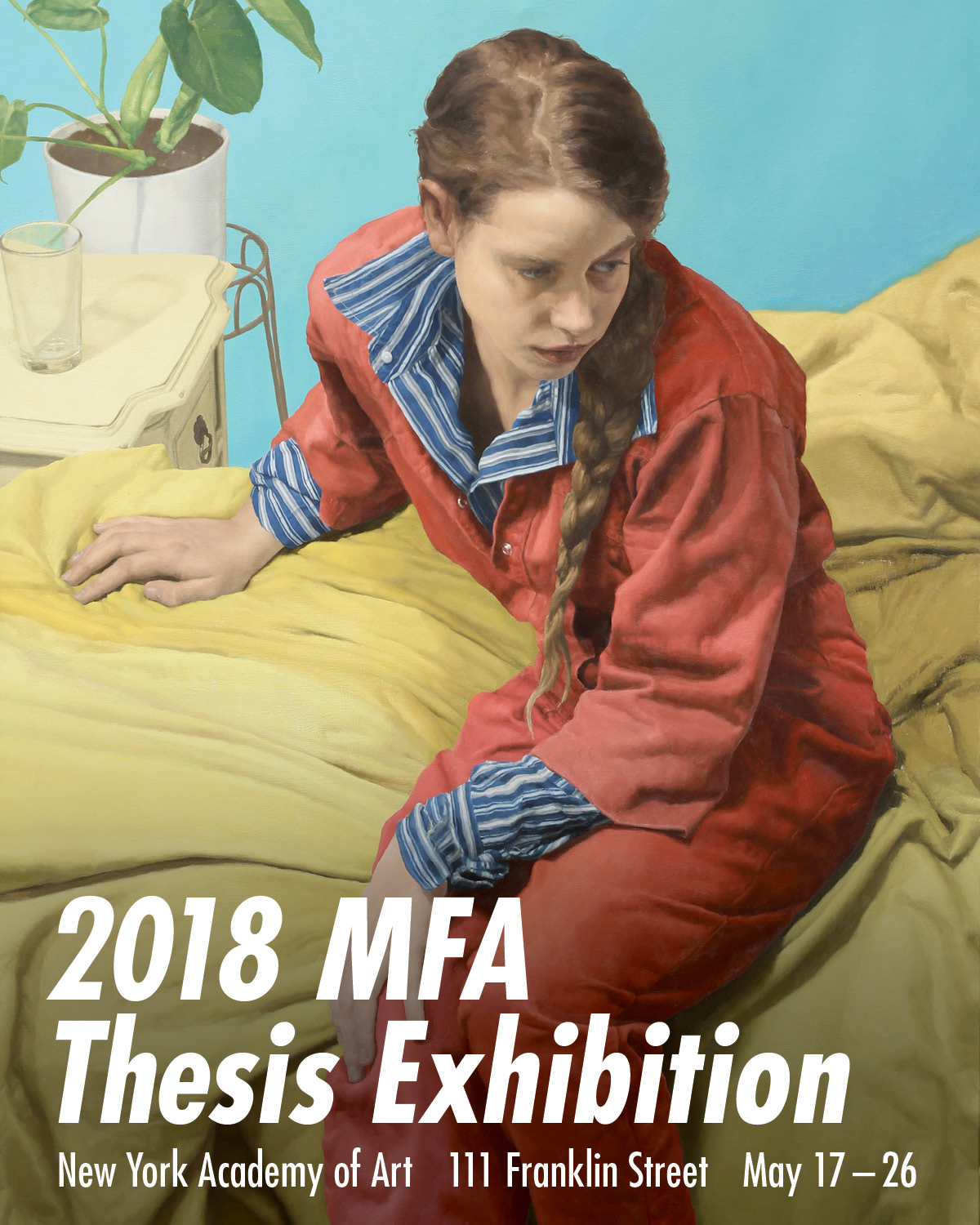
- Emily Acheson-Adams (MFA 2018)
- Walker Augustyniak (MFA 2018)
- Mary Ball (MFA 2018)
- Aidan Barker-Hill (MFA 2018)
- Carlos Bautista (MFA 2018)
- Amanda Borosavage (MFA 2018)
- Katie Bosch (MFA 2018)
- Yang Cao (MFA 2018)
- Emily Carrig (MFA 2018)
- Herbert B. Danielson (MFA 2018)
- Shiqing Deng (MFA 2018)
- Lou Eberhard (MFA 2018)
- Lou Eberhard (MFA 2018)
- Emily Ezell (MFA 2018)
- Michael Fusco (MFA 2018)
- Cesar Gabriotti (MFA 2018)
- Robyn Gibson (MFA 2018)
- Christina Lucia Giuffrida (MFA 2018)
- Lucy Han (MFA 2018)
- Lucy Han (MFA 2018)
- Zachary Lank (MFA 2018)
- Courtney Lindhorst (MFA 2018)
- Courtney Lindhorst (MFA 2018)
- Sirun Maloney (MFA 2018)
- María Elena Manero (MFA 2018)
- María Elena Manero (MFA 2018)
- Victoria Martinotti (MFA 2018)
- Lauren Maxwell (MFA 2018)
- Alexandra Mirzayantz (MFA 2018)
- Ayna Musayeva (MFA 2018)
- Naomi Nakazato (MFA 2018)
- Salomé Pereira (MFA 2018)
- Eliana Perez (MFA 2018)
- Bahar Sabzevari (MFA 2018)
- Sarah Sager (MFA 2018)
- Rochelle Schaevitz (MFA 2018)
- Rochelle Schaevitz (MFA 2018)
- Arngrimur Sigurdsson (MFA 2018)
- Kate Sinclair (MFA 2018)
- Sian Smith (MFA 2018)
- Liza Sokolovskaya (MFA 2018)
- Liza Sokolovskaya (MFA 2018)
- Liza Sokolovskaya (MFA 2018)
- Liza Sokolovskaya (MFA 2018)
- Brendan Sullivan (MFA 2018)
- Sarah Szabo (MFA 2018)
- Zeynep Tekiner (MFA 2018)
- Zeynep Tekiner (MFA 2018)
- Helena Vallée Dallaire (MFA 2018)
- Ruth M. Whaley (MFA 2018)
- Atalanta Xanthe (MFA 2018)
- Atalanta Xanthe (MFA 2018)
- Yicheng Zhang (MFA 2018)
- Yicheng Zhang (MFA 2018)
- Yicheng Zhang (MFA 2018)
MFA Class of 2018 |
|---|
| Emily Acheson-Adams
Walker Augustyniak Mary Ball Aidan Barker-Hill Carlos Bautista Amanda Borosavage Katie Bosch Yang Cao Emily Carrig Herbert B. Danielson Shiqing Deng Lou Eberhard |
Emily Ezell
Michael Fusco Cesar Gabriotti Robyn Gibson Christina Lucia Giuffrida Lucy Han Zachary Lank Courtney Lindhorst Sirun Maloney |
María Elena Manero
Victoria Martinotti Lauren Maxwell Alexandra Mirzayantz Ayna Musayeva Naomi Nakazato Salome Pereira Eliana Perez Erin Pollock Bahar Sabzevari Sarah Sager |
Rochelle Schaevitz
Arngrimur Sigurdsson Kate Sinclair Sian Smith Liza Sokolovskaya Brendan Sullivan Sarah Szabo Zeynep Tekiner Helena Vallée Dallaire Ruth Whaley Atalanta Xanthe Yicheng Zhang |
Artist-in-Residence Program at Giverny 2017

During the summer of 2017 Yang Cao (MFA 2018), Herbert B. Danielson (MFA 2018), Shiqing Deng (MFA 2018), Zachary Lank (MFA 2018), Victoria Martinotti (MFA 2018), and Brendan Sullivan (MFA 2018) participated in a three-week Artist-in-Residence Program at the Terra Foundation for American Art-Europe. The foundation is located in the village of Giverny, France, next to Monet’s house and gardens. Each Giverny residency recipient also received an additional travel stipend from the Jason Talley (MFA 2008) Scholarship Fund.
The Academy’s Giverny Residency Program is made possible by the New York Academy Travel Fund and the Villore Foundation.
- Yang Cao (MFA 2018)
- Yang Cao (MFA 2018)
- Yang Cao (MFA 2018)
- Yang Cao (MFA 2018)
- Yang Cao (MFA 2018)
- Yang Cao (MFA 2018)
- Herbert B. Danielson (MFA 2018)
- Herbert B. Danielson (MFA 2018)
- Shiqing Deng (MFA 2018)
- Shiqing Deng (MFA 2018)
- Shiqing Deng (MFA 2018)
- Zachary Lank (MFA 2018)
- Zachary Lank (MFA 2018)
- Victoria Martinotti (MFA 2018)
- Victoria Martinotti (MFA 2018)
- Victoria Martinotti (MFA 2018)
- Brendan Sullivan (MFA 2018)
- Brendan Sullivan (MFA 2018)
- Brendan Sullivan (MFA 2018)
MFA Open Studios 2018
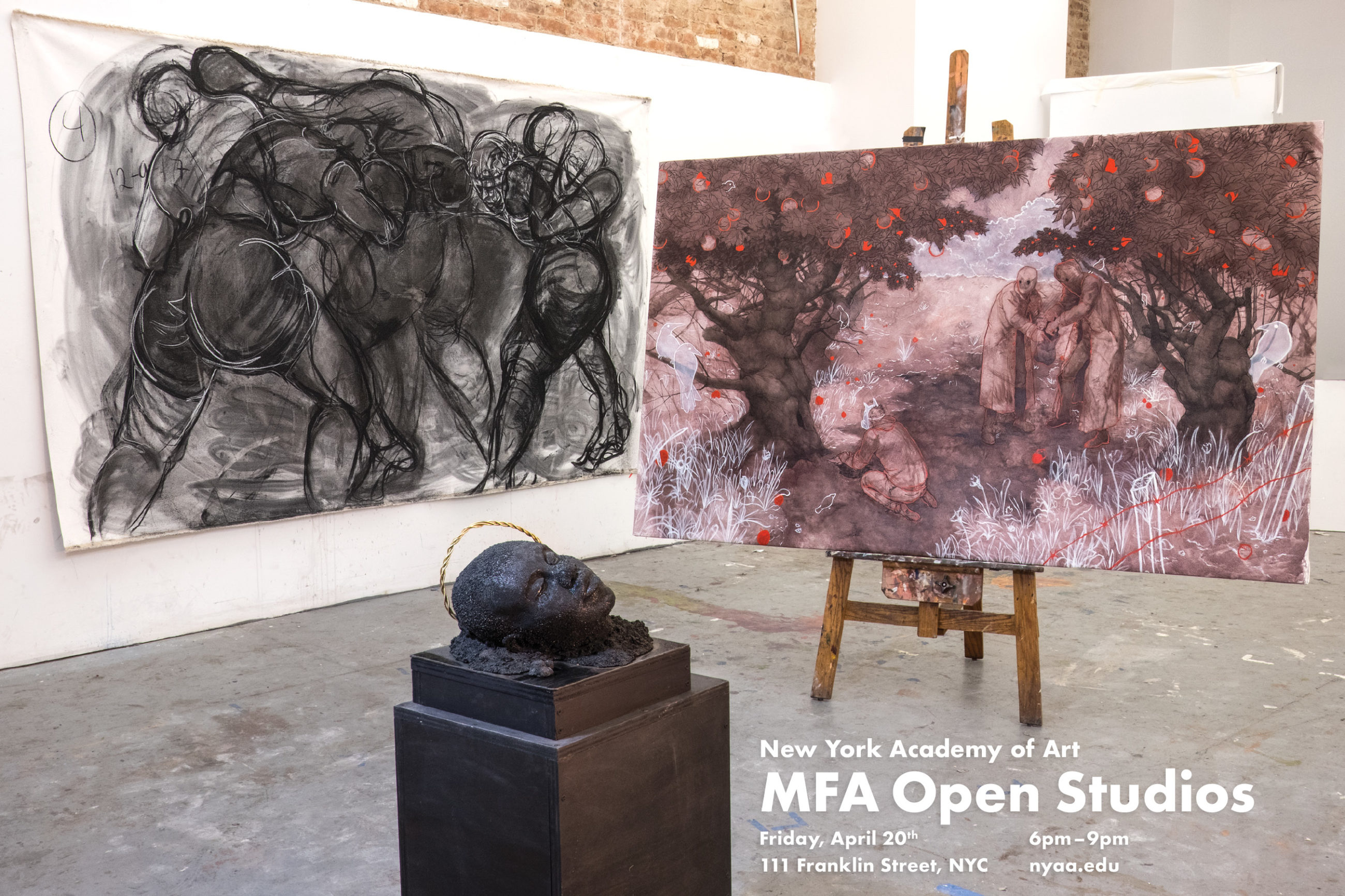
The Quin / New York Academy of Art
Co-curated by DK Johnston and Heidi Elbers, Director of Exhibitions at the Academy, the exhibition features work from seven alumni of the New York Academy of Art. The exhibit will be on view to the public at The Quin, located at the intersection of 57th Street and Sixth Avenue in Manhattan through April 30, 2018.
The Quin has long demonstrated its dedication to the arts through its Quin Arts program, which has brought dynamic artists to new audiences for the past five years. The Quin and the New York Academy of Art also share an extended history of collaboration. Most notably, they partnered to feature Blek le Rat, the “father of stencil graffiti,” as an artist-in-residence at the Quin in 2014. During his residency, the artist created a series of 25 unique monotypes with lithography at the New York Academy of Art, which were then featured at the Quin as part of the exhibition, “Blek le Rat: Escaping Paris.”
The exhibition will include works from Tamalin Baumgarten (MFA 2015), Shauna Finn (MFA 2005), Alexis Hilliard (MFA 2014), Gianna Putrino (MFA 2017), James Razko (MFA 2015), Nicolas V. Sanchez (MFA 2013, Fellow 2014), and Gabriel Zea (MFA 2015).
- Tamalin Baumgarten (MFA 2015)
- Tamalin Baumgarten (MFA 2015)
- Shauna Finn (MFA 2005)
- Alexis Hilliard (MFA 2014)
- Alexis Hilliard (MFA 2014)
- Alexis Hilliard (MFA 2014)
- Alexis Hilliard (MFA 2014)
- Alexis Hilliard (MFA 2014)
- Gianna Putrino (MFA 2017)
- Gianna Putrino (MFA 2017)
- James Razko (MFA 2015)
- James Razko (MFA 2015)
- Nicholas Sanchez (MFA 2013, Fellow 2014)
- Nicholas Sanchez (MFA 2013, Fellow 2014)
- Nicholas Sanchez (MFA 2013, Fellow 2014)
- Nicholas Sanchez (MFA 2013, Fellow 2014)
- Nicholas Sanchez (MFA 2013, Fellow 2014)
- Nicholas Sanchez (MFA 2013, Fellow 2014)
- Nicholas Sanchez (MFA 2013, Fellow 2014)
- Nicholas Sanchez (MFA 2013, Fellow 2014)
- Nicholas Sanchez (MFA 2013, Fellow 2014)
- Nicholas Sanchez (MFA 2013, Fellow 2014)
- Nicholas Sanchez (MFA 2013, Fellow 2014)
- Nicholas Sanchez (MFA 2013, Fellow 2014)
- Nicholas Sanchez (MFA 2013, Fellow 2014)
- Nicholas Sanchez (MFA 2013, Fellow 2014)
- Nicholas Sanchez (MFA 2013, Fellow 2014)
- Gabriel Zea ( MFA 2015)
Forensic Sculpture 2018
The New York Academy of Art’s Forensic Sculpture Workshop, created in 2015, is the result of a unique partnership between the Academy and the New York City Office of the Medical Examiner, in which art students used skulls from actual “cold cases” to recreate the faces of the victims, in the hope of identifying unknown persons.
For the week-long sculpture course, Academy students each receive a replica of the skull from a real unidentified body, and use their sculptural and artistic training to accurately reconstruct the face of the victim in clay, under the instruction of Joe Mullins, a forensic imaging specialist. Bradley J. Adams, the director of forensic anthropology for the Office of the New York City Medical Examiner, called clay facial reconstructions the “last-ditch effort” to identify unknown homicide victims, after methods such as fingerprinting, dental records and DNA testing fail to yield results. Nationally, thousands of skeletal remains await identification. The pilot program at the Academy in 2015 marked the first time the Office of the Medical Examiner had ever attempted this project with an art school, and resulted in 11 busts created from New York City skeletal remains and one positive identification. In 2016, the program was expanded from New York to include skulls from a variety of cold cases all over the country, from Delaware to California, and included two 19th-century skulls from unknown soldiers killed during the Civil War.
In 2018, the Academy expanded its scope. In addition to working on selected remains from New York City, partnered with the Pima County, Arizona, Medical Examiner’s office to recreate the faces of 8 unknown migrants whose skeletal remains had been discovered in the desert. Each year hundreds of people die attempting to cross the US-Mexico border and in 2017, the death rate for migrants increased 17% according to the United Nations.
Starting in 2018, the Academy partnered with technology company Cappasity to create 360-degree digitizations of the reconstructions. The high-definition digitizations, able to be rotated and zoomed, will greatly improve chances for possible identification and Cappasity has given use of its proprietary software pro bono to be used for this project.
For more information, contact Angharad Coates, Director of Communications for the New York Academy of Art atacoates@nyaa.edu, 212- 842 -5975
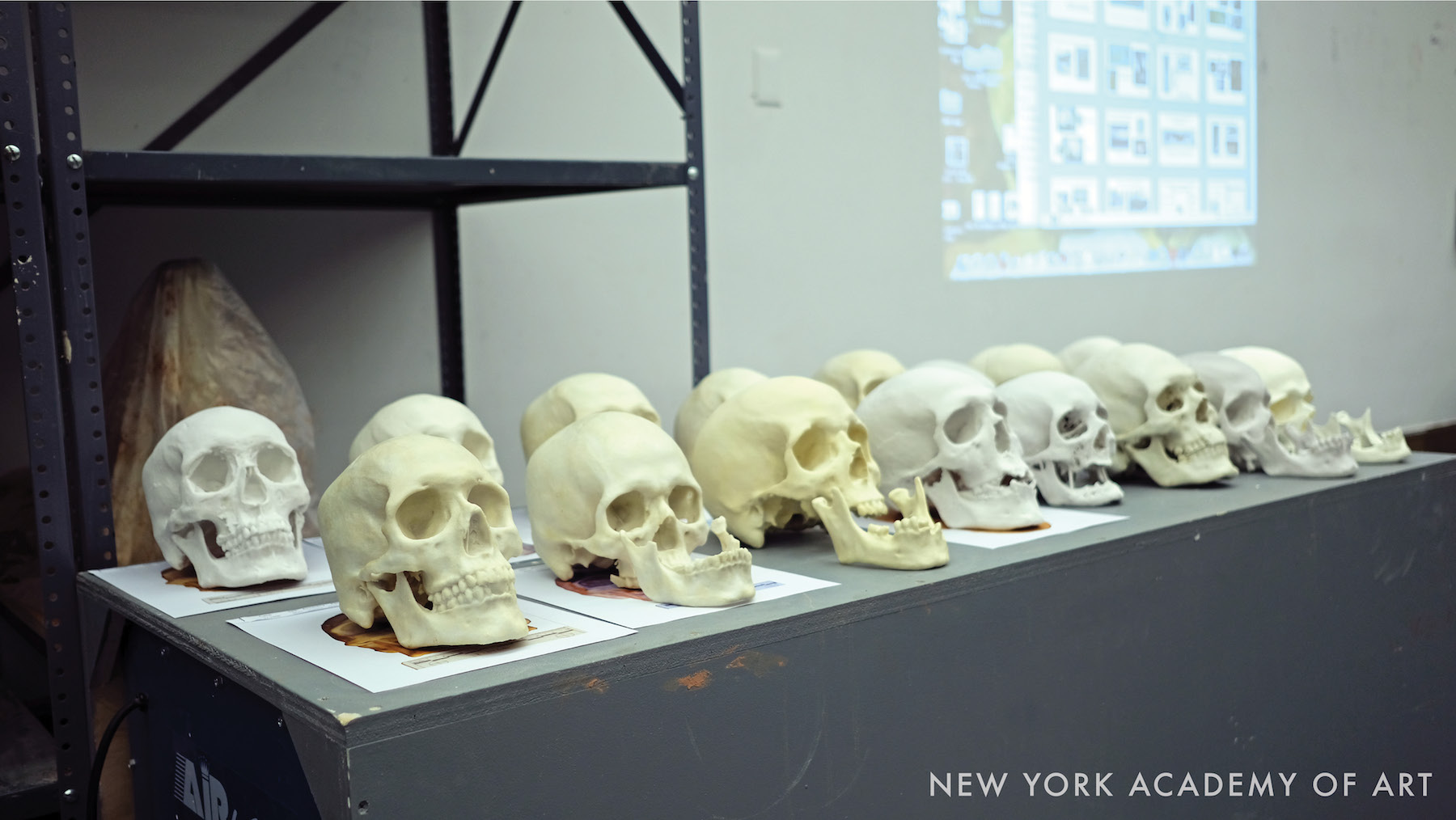
First day of class
(courtesy New York Academy of Art)
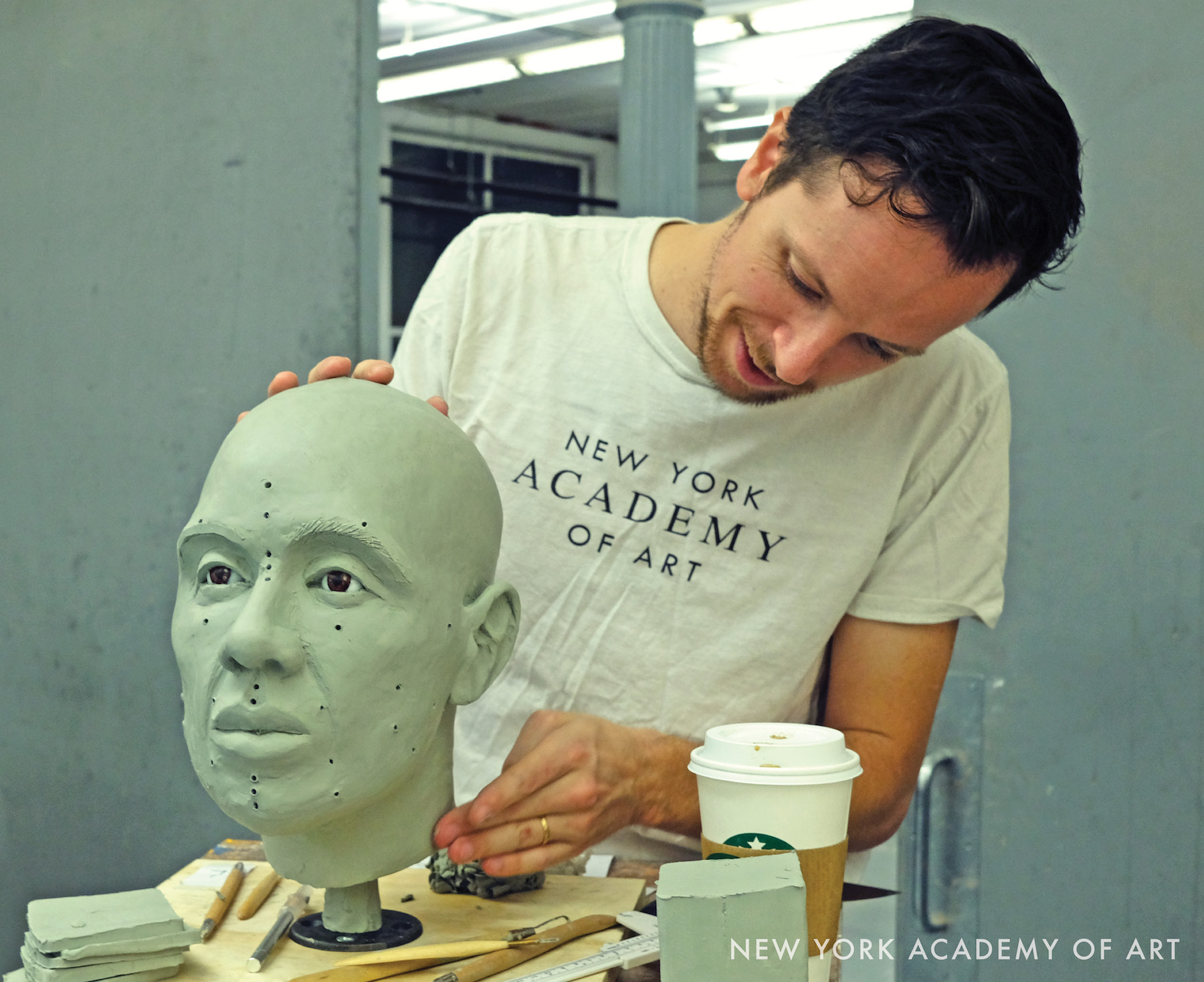
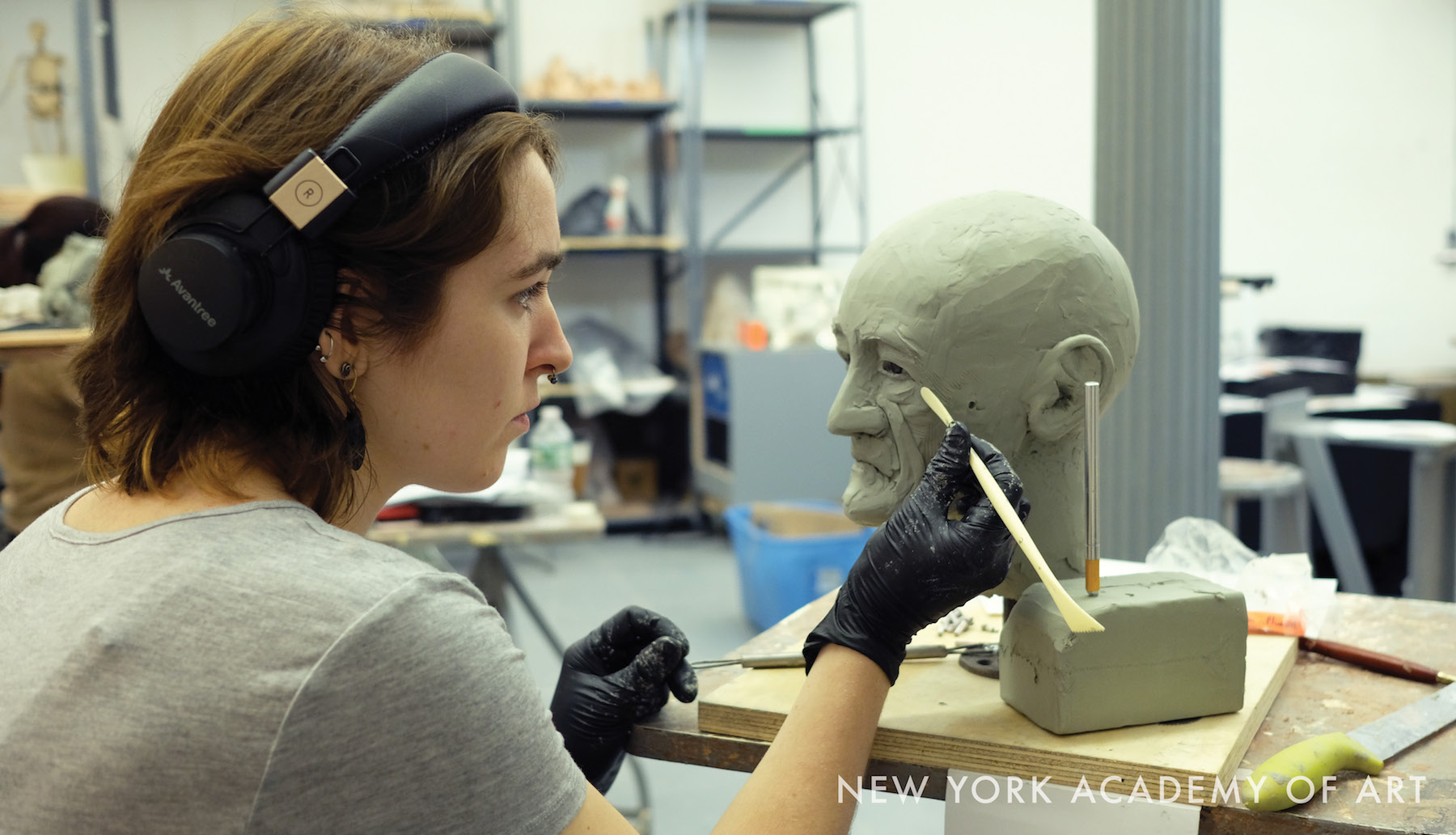
New York Academy of Art students at work
(courtesy New York Academy of Art)
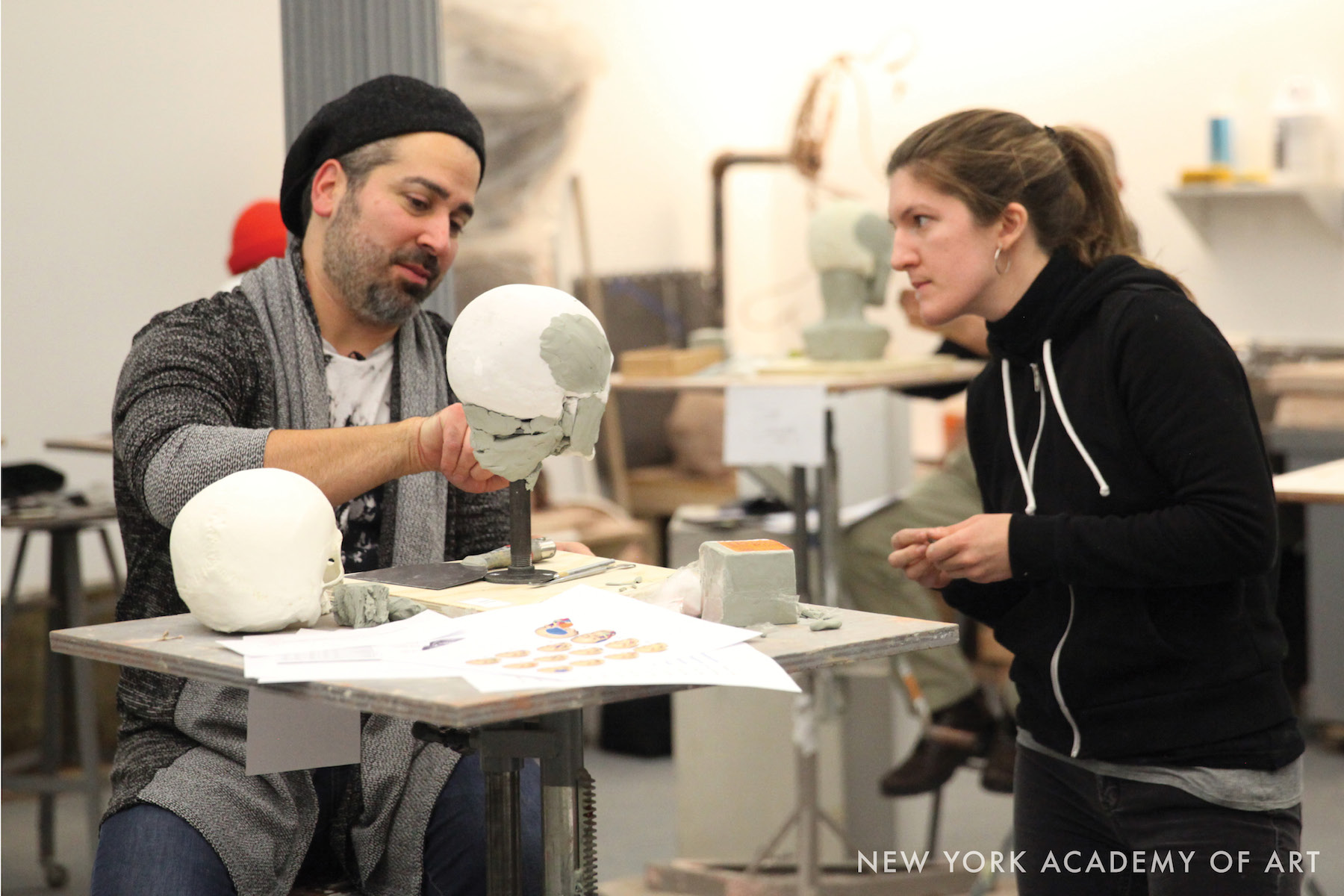
Instructor Joe Mullins and student
(courtesy Emily J. Mullins)
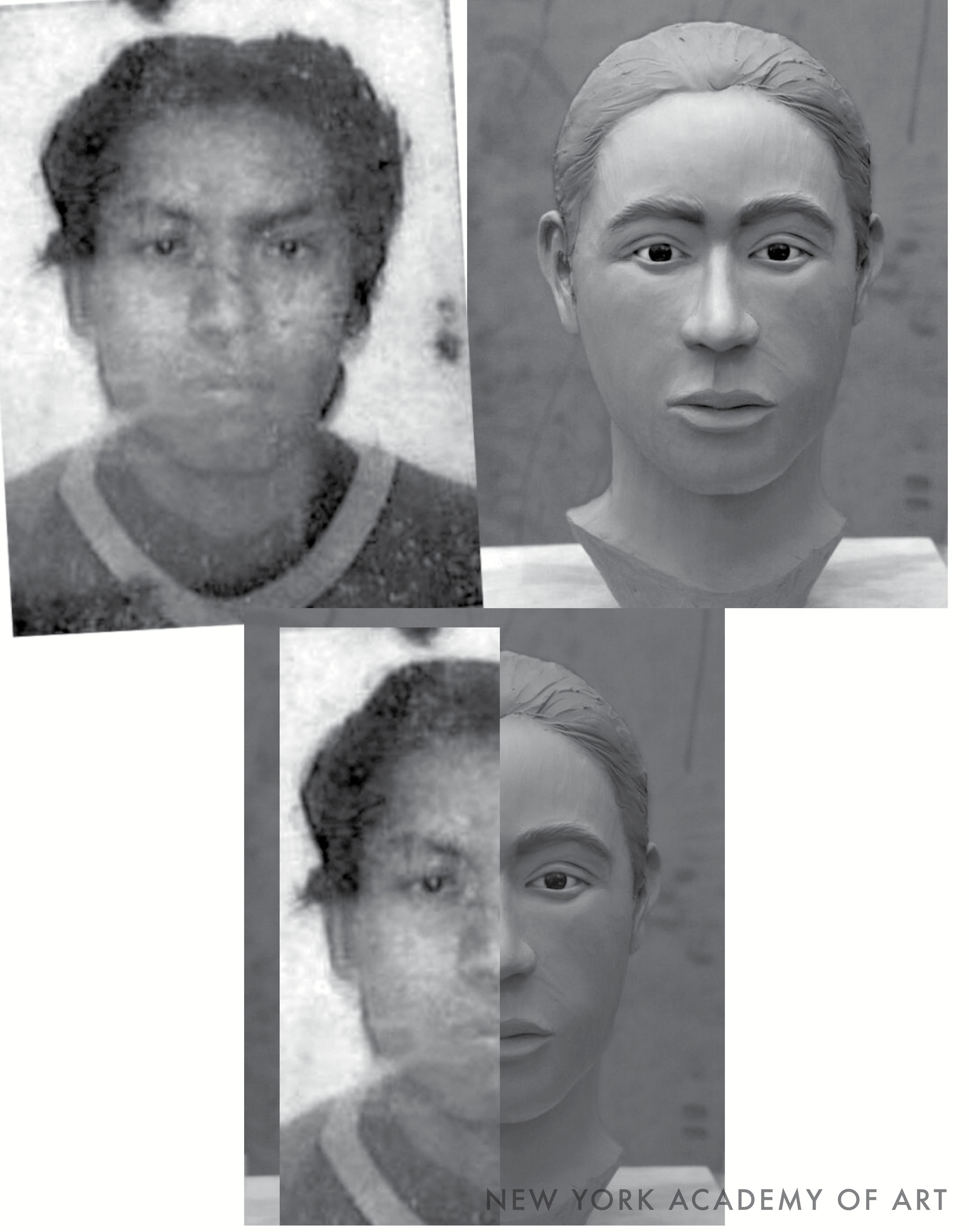
Mexican ID photo, compared to New York Academy of Art facial forensic reconstruction
(courtesy Pima County, Arizona, medical examiner’s office)
